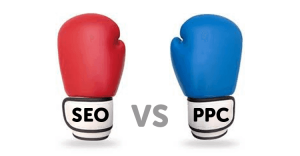If you own and run an eCommerce website then SEO is a vital component if you’re going to stand out from your competitors and keep generating sales. Having an effective SEO strategy that is monitored and continually optimised ensures your business remains in the race and is staying relevant in the organic search results pages.
Ecommerce SEO vs SEO
SEO for an eCommerce website shares many similarities with general organic SEO for a website that doesn’t sell products or services. However, there are some notable differences; Ecommerce SEO is more focused on optimising product descriptions, product metadata and headlines, in general SEO is based on targeting keywords across static pages. As an ecommerce business, you need to be implementing both of these methods.
Your product pages should be performance optimised, have a good user experience and contain relevant keywords but in addition, they need to tell your customers about your brand, accurately describe your products and feature semantic content with the ultimate goal of achieving a conversion from a site visitor.
Why should we do this?
Organic product search optimisation ensures your business has good visibility in Google product search results. As research has shown, you are more likely to get a conversion from an organic search result.
Amazon, eBay and other online retailers are common go-to websites for online customers, however, search engines are still responsible for a large amount of eCommerce traffic; research shows that 46% of all product searches begin on Google.
As an ecommerce business owner, organic search is the primary way to drive traffic to your product pages via search engines without having to use pay-per-click campaigns. PPC ads can be effective but as we discussed in this recent blog post, organic SEO is a great long-term investment in your business. Research has shown customers instinctively trust organic product search results more than PPC ads and are much more likely to click on them.
5 tips for effective Ecommerce SEO
- Product keyword strategy
Take the time to carry out in-depth keyword research, choosing the words and phrases for your products will help you rank within specific categories where your competitors don’t yet appear. Ensure that you are not using keywords that are too broad or too competitive. A keyword that is very competitive will take a long time to rank for and one that is too broad could see you experiencing high bounce rates and low conversion rates where people aren’t finding what they were looking for.
2. Unique product descriptions
Unique and appealing descriptions for your products will set you apart from the competition. Aim for clear, keyword-rich, descriptive content that speaks to your audience. Be sure not to copy original content from manufacturers from their websites, blogs etc. you may face duplicate content penalties from Google.
3. Optimised images
Quality product images are critical to the success of an online store, but they are also an opportunity to enhance SEO. Images appear in Google search results and have the power to drive traffic to your website. Ensure that you add a keyword-rich description to the ALT tag, have relevant image file names that relate to the product name, include descriptive captions and keep the file size low so that the page loading time is kept to a minimum.
4. Semantic content
Including meaningful and high-quality content is a key tactic to use in order to build authority and trust with the search engines and your users. It also encourages users to spend more time on your website, this is also called dwell factor and this in itself is an important ranking factor. Great content will also be noticed by other websites in your particular nice and create backlink opportunities which will increase traffic to your site and enhance your brand recognition. Maintaining a blog, and creating other content such as articles and how-to guides are all effective for eCommerce websites.
Conclusion
Your Ecommerce website is not going to produce those sales unless it can be easily found within search results. For more information on how to improve eCommerce SEO for your online store and strategies to consider, please get in touch with us we are ready and waiting to help your business.




